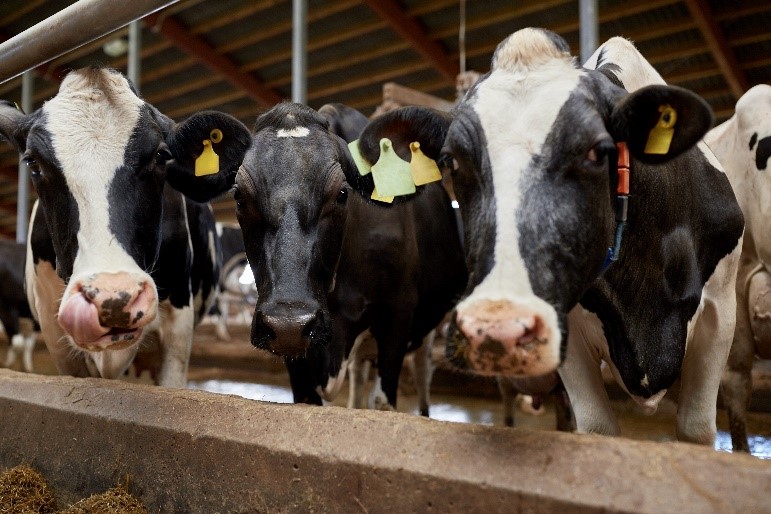
by John McCarthy Consulting Ltd. | Feb 5, 2024 | Blog, News
Some accountants can still remember a time in the distant past when it was possible to have the same client engagement letter in place for several years, without too much upset.
However, the pace of change in the various pieces of overlapping legislation (much of it of a whistleblowing nature) that impact on engagement letters, seems to be getting faster and faster. Different obligations under criminal law, tax law, company law and anti-money laundering that are now required in the typical contract with your client, mean that there is a never ending requirement to review your letters and issue revised and updated letters to your clients on an annual basis.
Here is a quick checklist of the legislation you need to include in audit engagement letters:
Audit engagement letter under the Companies Act 2014
(correct at the time of going to press on 2 February 2024):
|
Topic
|
Legislation
|
| Company law |
|
| Criminal law
|
- ·‘Section 59 Criminal Justice (Theft and Fraud Offences) Acts, 2001 and 2021’
- ‘Criminal Justice Act 2011’
|
| Tax law |
- ‘Section 1079 Taxes Consolidation Act, 1997’
|
| Anti-Money laundering/terrorist financing |
- ‘Criminal Justice (Money Laundering and Terrorist Financing) Acts, 2010 to 2021’
|
| Data Protection |
- ‘Data Protections Acts 1988 to 2018 and the GDPR’
|
In future issues of this blog, we will cover the typical legislative references required in engagement letters for other entities including specialised ones like:
- Solicitors (reporting under the new Solicitors Accounts Regulations 2023 of the Law Society);
- Auctioneers
- Owners management companies;
- Charities;
- Insurance intermediaries; and
- Industrial & Provident Societies
Please also go to our website www.jmcc.ie/training to see our latest:
- Latest updated AML for Accountants webinar (December 2023) which explains the current legal AML reporting position for accountancy firms and includes a quiz. Upon completion, you receive a CPD Certificate of attendance in your inbox. A 20% discount is available for orders of five or more webinars/products, if bought together.
- There are other accounting/audit webinars on the site and more will follow throughout 2024.
- Anti-Money Laundering Policies Controls & Procedures Manual (March 2022) – View the Table of Contents click here.
- letters of engagement and similar templates. Please visit our site here where immediate downloads are available in Word format. A bulk discount is available for orders of five or more items if bought together.
- ISQM TOOLKIT – We can also tailor ISQM training and brainstorming sessions to suit your firm’s unique requirements. The ISQM TOOLKIT 2022 is available to purchase here.

by John McCarthy Consulting Ltd. | Nov 1, 2023 | Blog, News
The intention of this blog is to comment on some of the differences between the Industrial & Provident Societies Acts 1893 to 2021 versus the Companies Act, 2014:
Entity size thresholds – the Industrial & Provident Societies Acts 1893 to 2021 contain no concept for ‘micro’, ‘small’, ‘medium’ or ‘large’ entities, as these are all concepts enshrined in Irish company law by the Companies Act, 2014.
As a result Industrial & Provident societies (mostly these are cooperative ventures between community based groups) cannot:
- Be audit exempt;
- Avail of exemption from consolidation on the grounds of being a ‘small’ group;
- Cannot file abridged accounts; and
- Cannot use Section 1A of FRS 102 there is no concept of ‘small’ in their specific legislation;
- Must always include a Statement of Cash Flows under FRS 102/IFRS.
Statement on Relevant Audit Information – this is a statement required under section 330 of the Companies Act, 2014 where the directors of the company confirm that they have taken all relevant steps to inform the auditors of any relevant audit information and have established that the company’s statutory auditors are aware of that information. There is no equivalent requirement in the Industrial & Provident Societies Acts 1893 to 2021.
Compliance Statement – the Directors’ Compliance Statement (section 225 Companies Act, 2014) is required by certain entities incorporated under the Companies Act, 2014 but here is no equivalent in the Industrial & Provident Societies Acts 1893 to 2021.
There was a Government consultation to modernise the laws about Co-operative Societies which ended in February 2022 followed by a bill published in November 2022 but the bill hasn’t progressed as yet. See the Chartered Accountants Ireland website for the latest information available.
IT Controls Assessment
Auditors are reminded that there are relatively significant changes in the requirements of ISA 315 Identifying and Assessing the Risks of Material Misstatement for accounting periods commencing 15 December 2021, which in practical terms means, accounting periods Ended 31 December 2022 and later.
Auditors dealing with the audits of entities with such accounting periods affected by these change will need, to adopt new audit programmes and, in additional to the normal audit tests, to also assess the entity’s IT controls (no matter what the size of that entity).
This is a significant new development for auditors of SMEs, in particular, and will be a game changer ion the type of audit documentation and evidence of assessment of such IT controls by the auditor on audit files.
For an easy to implement additional (two page) IT Controls Questionnaire to help document the above process, please click on this link to download immediately for only €60 + VAT.
Please also go to our website to see our:
- Anti-Money Laundering Policies Controls & Procedures Manual (March 2022) – View the Table of Contents click here.
- AML webinar (March 2022) available here, which accompanies the AML Manual. It explains the current legal AML reporting position for accountancy firms and includes a quiz. Upon completion, you receive a CPD Certificate of attendance in your inbox.
- letters of engagement and similar templates. Please visit our site here where immediate downloads are available in Word format. A bulk discount is available for orders of five or more items if bought together.
- ISQM TOOLKIT or if you prefer to chat through the different audit risks and potential appropriate responses presented by this new standard, please contact John McCarthy FCA by e-mail at john@jmcc.ie.
We typically tailor ISQM training and brainstorming sessions to suit your firm’s unique requirements. The ISQM TOOLKIT 2022 is available to purchase here.

by John McCarthy Consulting Ltd. | Apr 24, 2023 | News
According to a recent Government press release, a consultation will soon commence on proposals to enhance the Companies Act 2014.
Among the issues to be considered are:
- Amend the audit exemption regime for small/micro companies, to remove automatic loss of audit exemption and put in place a two-step, graduated procedure to deal with late filing;
- Provide companies and industrial and provident societies with the option to hold physical/hybrid and virtual meetings including AGMs and general meetings;
- Make amendments to the regulation of receivers;
- Extend certain reporting obligations to examiners, interim examiners and process advisors;
- Enhance certain powers for the Corporate Enforcement Authority, the Irish Auditing and Accounting Supervisory Authority and the Companies Registration Office to help investigate and prosecute alleged breaches of company law.
Please go to our website to see our new ISQM TOOLKIT or if you prefer to chat through the different audit risks and potential appropriate responses presented by this new standard, please contact John McCarthy FCA by e-mail at john@jmcc.ie.
We typically tailor training and brainstorming sessions to suit your firm’s unique requirements.
Publications and AML webinars:
- The ISQM TOOLKIT 2022 is available to purchase here.
- See our latest Anti-Money Laundering Policies Controls & Procedures Manual (March 2022) – View the Table of Contents click here.
- Also we have an updated AML webinar (March 2022) available here, which accompanies the AML Manual. It explains the current legal AML reporting position for accountancy firms and includes a quiz. Upon completion, you receive a CPD Certificate of attendance in your inbox.
- To ensure your letters of engagement and similar templates are up to date visit our site here where immediate downloads are available in Word format. A bulk discount is available for orders of five or more items if bought together.

by John McCarthy Consulting Ltd. | Apr 14, 2022 | Blog, News
A significant legislative change made five years ago will only impact affected companies this year. The amendment made by the Companies (Accounting) Act 2017 amended section 1274 dealing with unlimited companies (known as a ULCs).
‘Designated ULCs’ lose accounts filing exemption
Among other changes, certain types of ULC (known as ‘designated ULCs’) are required to file their accounts with the CRO (including group accounts where applicable) for the first time. While most changes in the law came into effect from 1 January 2017, this one was delayed until accounting periods commencing 1 January 2022.
The amended Section 1274 Companies Act, 2014 broadly states that for accounting periods commencing on or after 1 January 2022, a ULC that has been a holding company of an undertaking which was at that time limited must file financial statements along with their annual return for accounting periods commencing on or after 1 January 2022.
This applies across the board regardless of the size of the group as section 1274 does not have any exclusion clause that says the section disapplies sections 347/348 making the filing of annual returns/accounts compulsory.
ULCs may qualify for audit exemption
In a related point Section 1230 Companies Act, 2014 allows such designated groups, where they are private ULCs (provided they satisfy the ‘small’ company criteria) to claim audit exemption (assuming all the other criteria are satisfied – annual returns filed on time, no 10% shareholder objections etc., their constitution permits audit exemption etc. ) because the Table disapplying certain sections of the Companies Act, 2014 for ULCs does not disapply the audit exemption and ‘small’ company criteria for ULCs contained in Parts 1-14 of the Companies Act, 2014.
Filing Exemption Remains for non-designated ULCs
So-called ‘non designated’ ULCs under Section 1274, that do not have any limited liability subsidiaries and whose direct and indirect shareholders do not comprise solely of limited liability undertakings will continue to be exempt from the requirement to file their financial statements.
In other words where a company is a ‘pure’ unlimited company (i.e. there is no ultimate protection of limited liability in the group structure), it will still be possible to avail of an exemption from filing financial statements.
However, they will need to file an auditor’s report attached to the Annual Return which confirms that the auditors have audited the financial statements of the company for the relevant financial year in accordance with sections 336 and 391.
Are your AML Policies Controls & Procedures up to date?
We have just released our latest Anti-Money Laundering Policies Controls & Procedures Manual (March 2022) – View the Table of Contents click here.
We have also just released an updated AML webinar (March 2022) available here, which accompanies the AML Manual. It explains the current legal AML reporting position for accountancy firms.
To ensure your letters of engagement and similar templates are up to date visit our site here where immediate downloads are available in Word format. A bulk discount is available for orders of five or more items if bought together.
For our latest Audit Quality Control Manual (October 2021) (implementing the latest Irish Audit & Accounting Supervisory Authority standards including ISQC1 on audit quality control) click here. View the Table of Contents here.

by John McCarthy Consulting Ltd. | Feb 21, 2022 | Blog, News
There is currently no specific modern legislation dealing with co-operatives in Ireland. The Industrial and Provident Societies (IPS) Acts 1893-2021 come from another century and do not mirror up to date company law principles. Currently there are 960 Industrial and Provident Societies registered, comprised mainly of various agricultural co-operatives, group water schemes and housing co-operatives.
There are many aspects of good practice set out in company law (in the Companies Act, 2014) that are applicable to co-operatives, either directly or with adaptation.
Consequently the Department of Enterprise, Trade & Employment commenced a consultation on 28 January 2022 on proposals to update the IPS legislation.
Amongst the proposals, it is intended that:
- The legislation will cross apply six parts of CA 2014, with amendments needed to adapt to the particular circumstances of co-operatives, relating to:
-
-
- Examinership and
- Winding up (both of these are already cross-applied in the current IPS Acts);
- Investigations;
- Compliance and Enforcement,
- Receivers and
- Financial Statements.
- The legislation will generally replicate, with some amendments, provisions from other Parts of the Companies Act, 2014 i.e.
-
-
- Directors’ Duties;
- Charges and Debentures and
- Functions of the Registrar.
- The legislation will also use the relevant parts of Companies Act, 2014 to give assurance to stakeholders in areas dealing with
-
-
- Registration;
- Corporate Governance
- Mergers and
- Strike-off and Restoration.
There are just 12 questions in this consultation and the response deadline is 5pm this Friday 25 February 2022 and responses must be sent to coopconsultation@enterprise.gov.ie.
The full consultation (and response template) is available here.
To ensure your letters of engagement and similar templates are up to date visit our site here where immediate downloads are available in Word format. A bulk discount is available for orders of five or more items if bought together.
For our latest Audit Quality Control Manual (October 2021) (implementing the latest Irish Audit & Accounting Supervisory Authority standards including ISQC1 on audit quality control) click here. View the Table of Contents here.
We also have an up to date Anti-Money Laundering Procedures Manual (September 2021) – View the Table of Contents click here.










